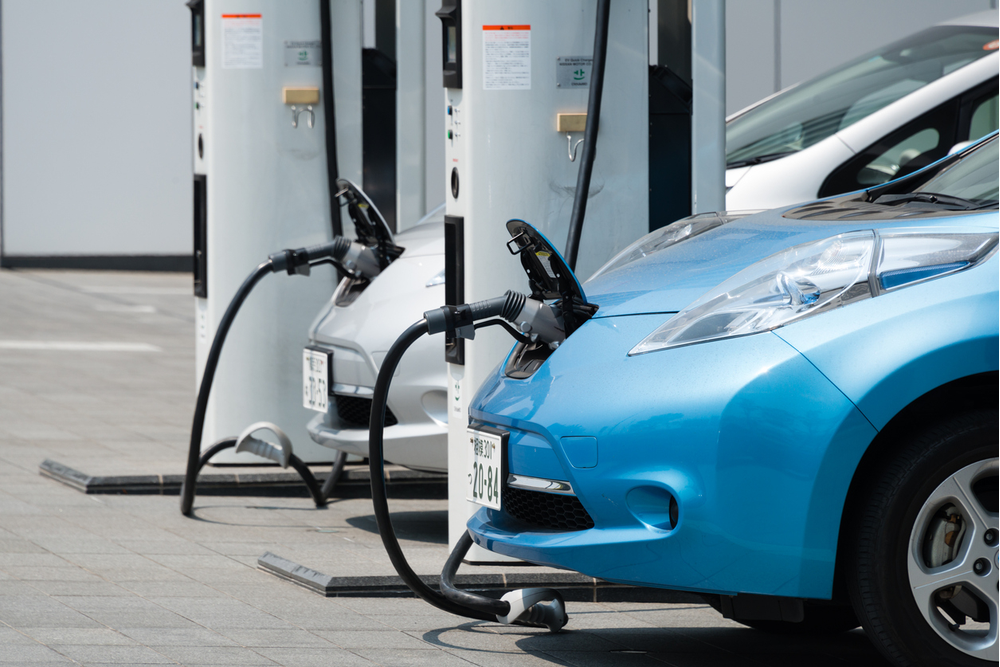A symposium by Newcastle University and the Energy Research Institute at NTU
(free of charge)
Supported by the UK Department for Business, Energy and Industrial Strategy
and the UK High Commission in Singapore
The governments in the UK and Singapore have ambitious carbon reduction targets to achieve Net Zero. A key strategy is electrification of land transport, known as electromobility. This includes the adoption of electric private vehicles (EV's), taxis, fleets and heavy transport such as buses and haulage. While there has been significant progress, there are still substantial social, policy, technical and scientific barriers.
This international symposium will reflect on progress so far in the UK and Singapore in the transition to electromobility. It will consider the social, policy and technical developments and identify key successes and challenges. The symposium will be led by international researchers from the UK and Singapore in social impact, transport policy, data and modelling, engineering and battery technologies. It will also be attended by representatives from government agencies and the leading industry players from the UK and Singapore.
The symposium will be of interest to anyone working in electromobility. Registration is free.
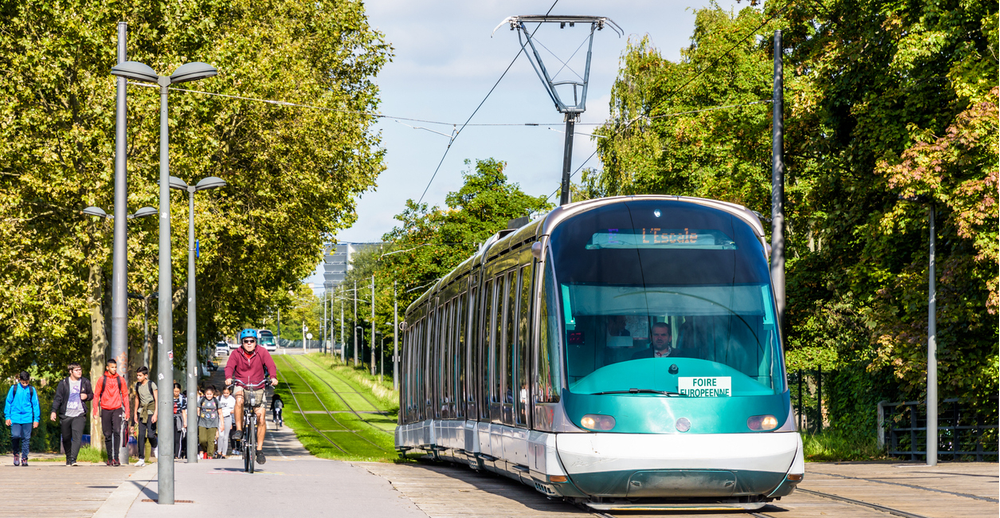
Sessions
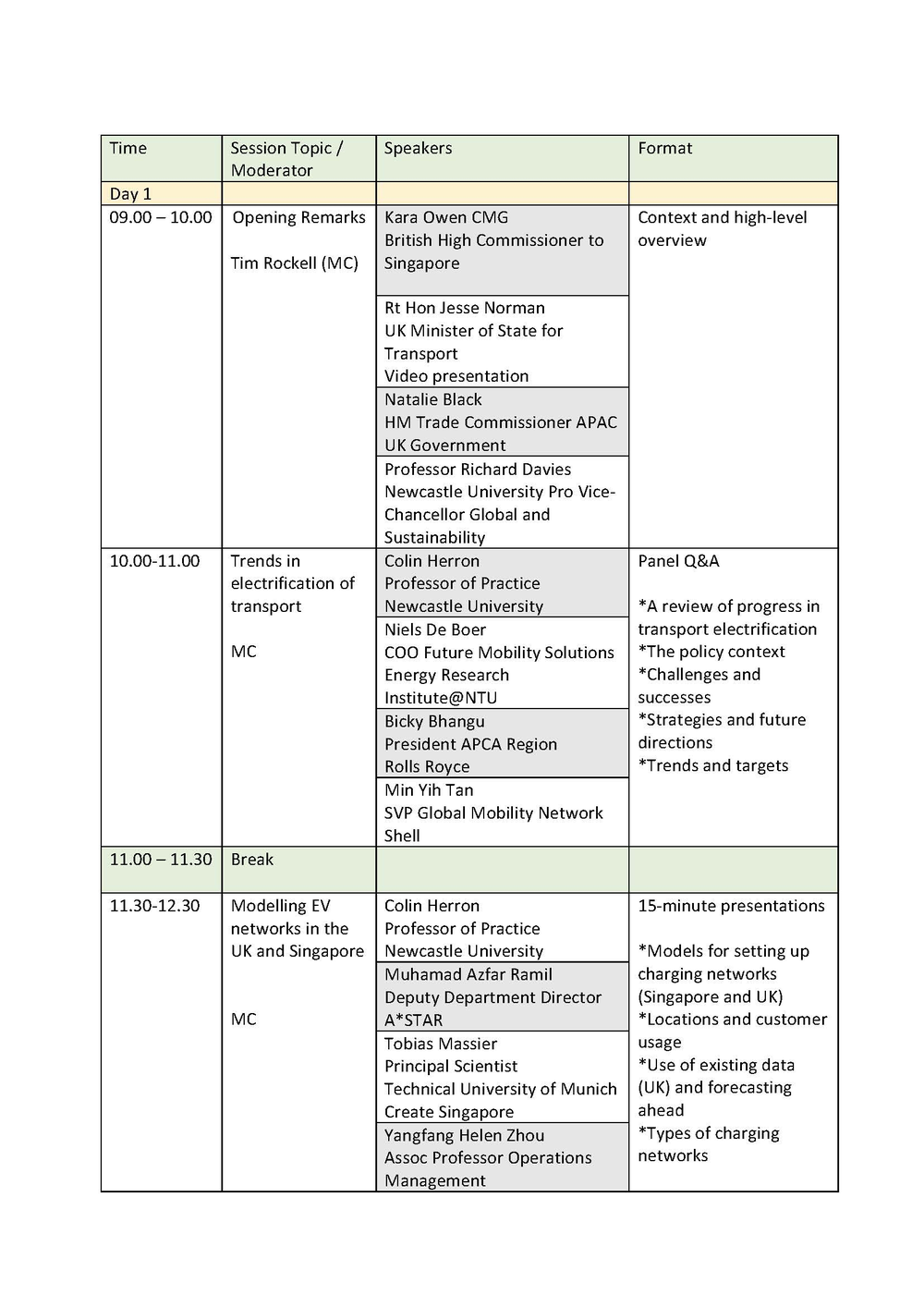
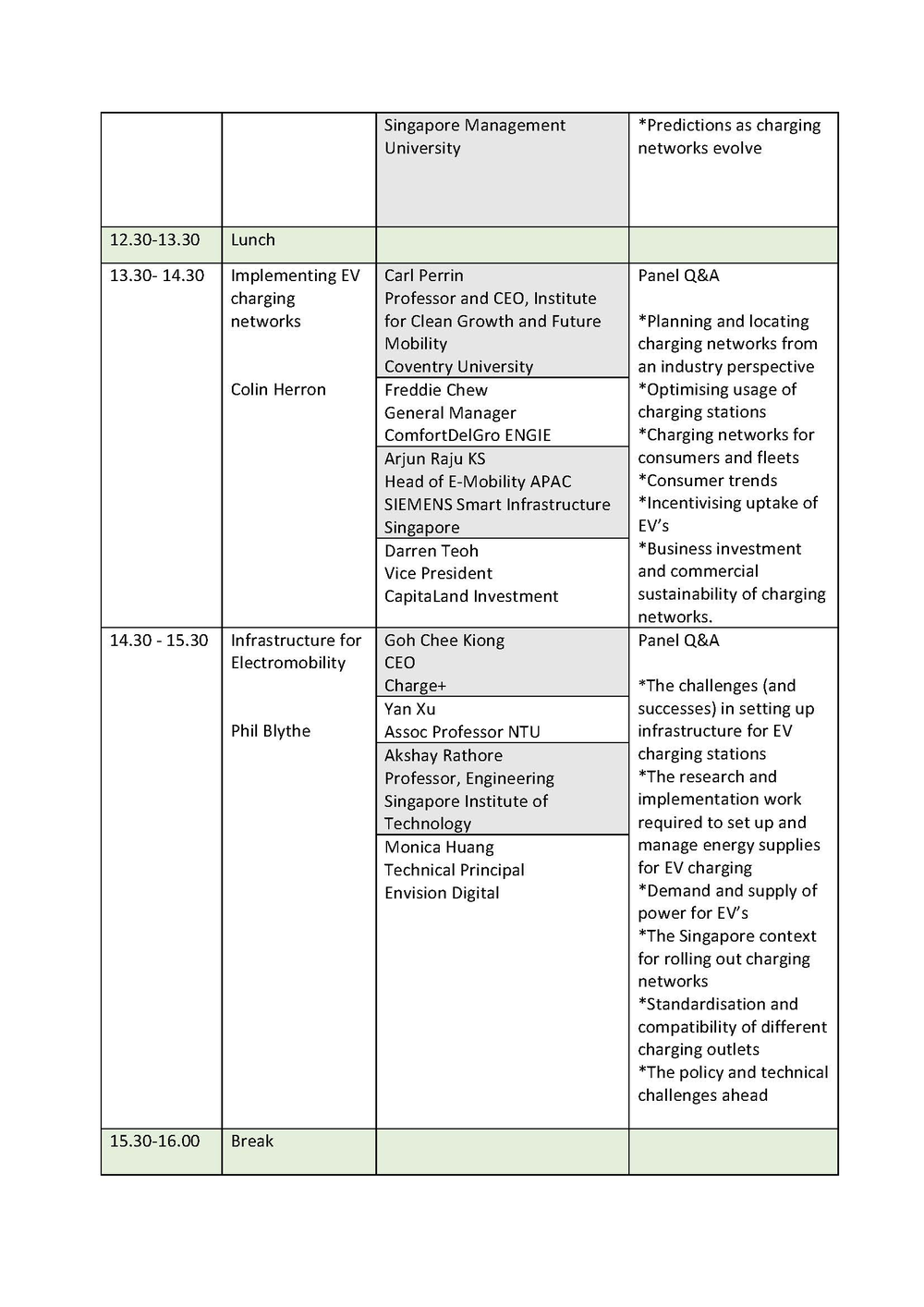
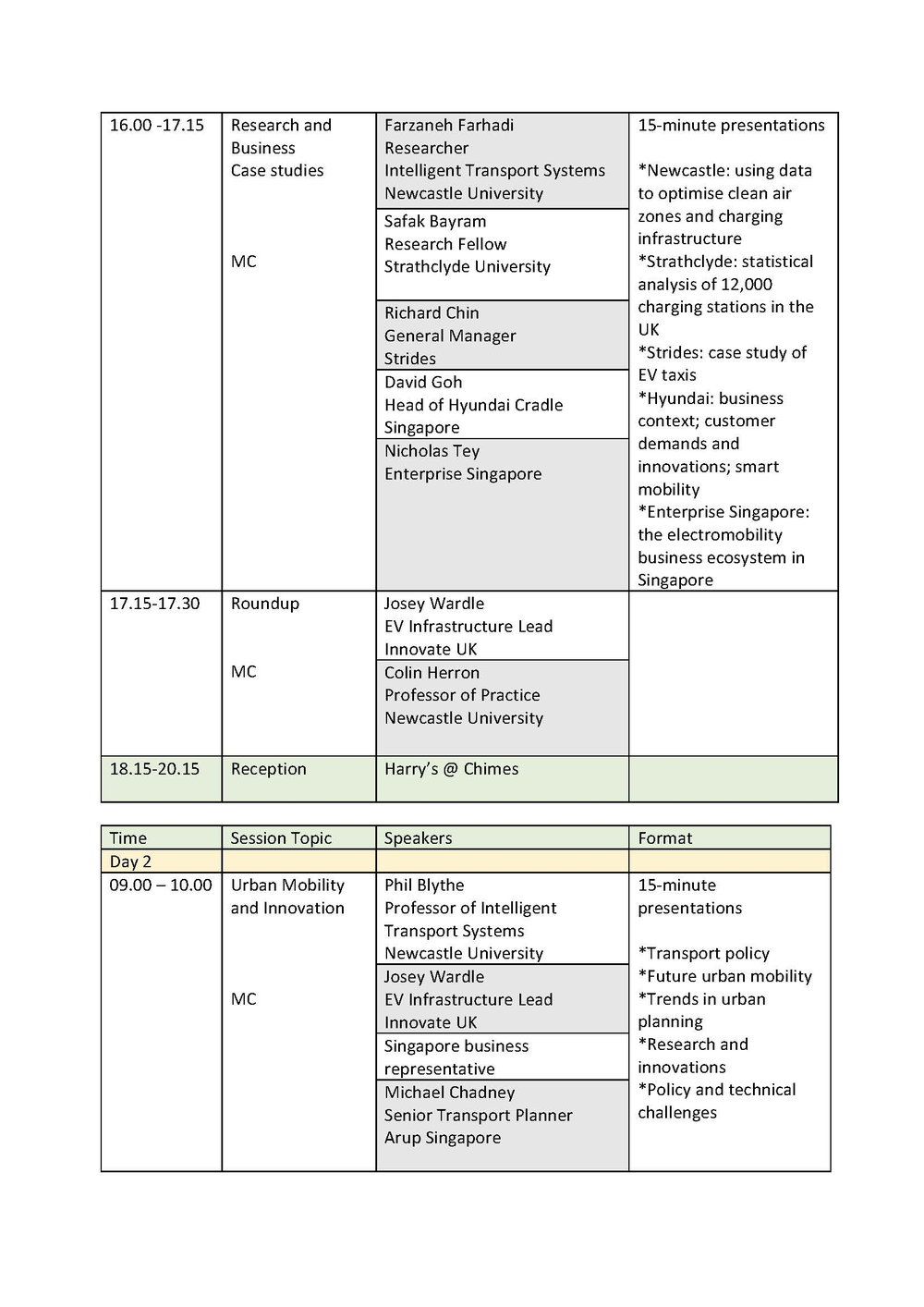
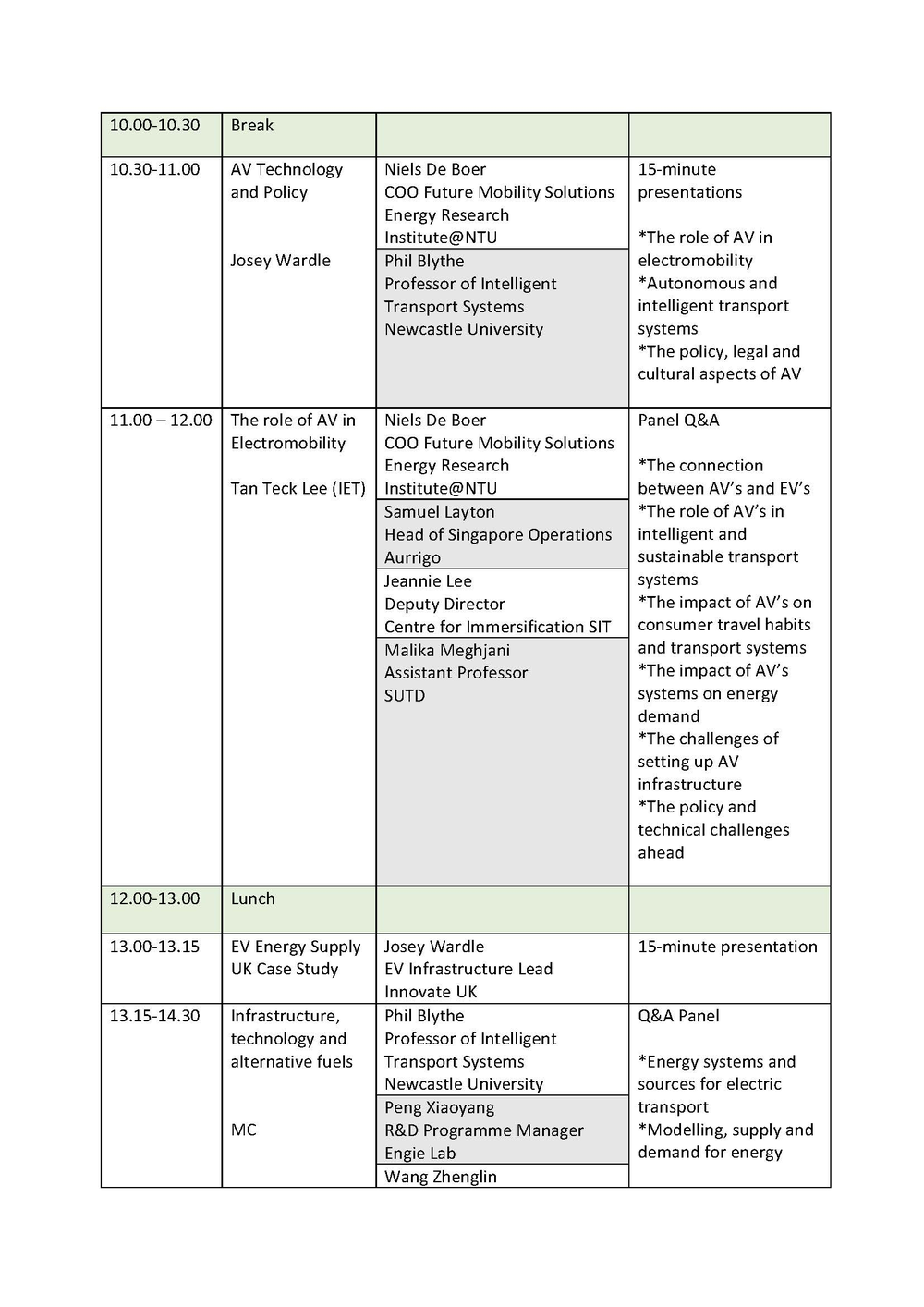
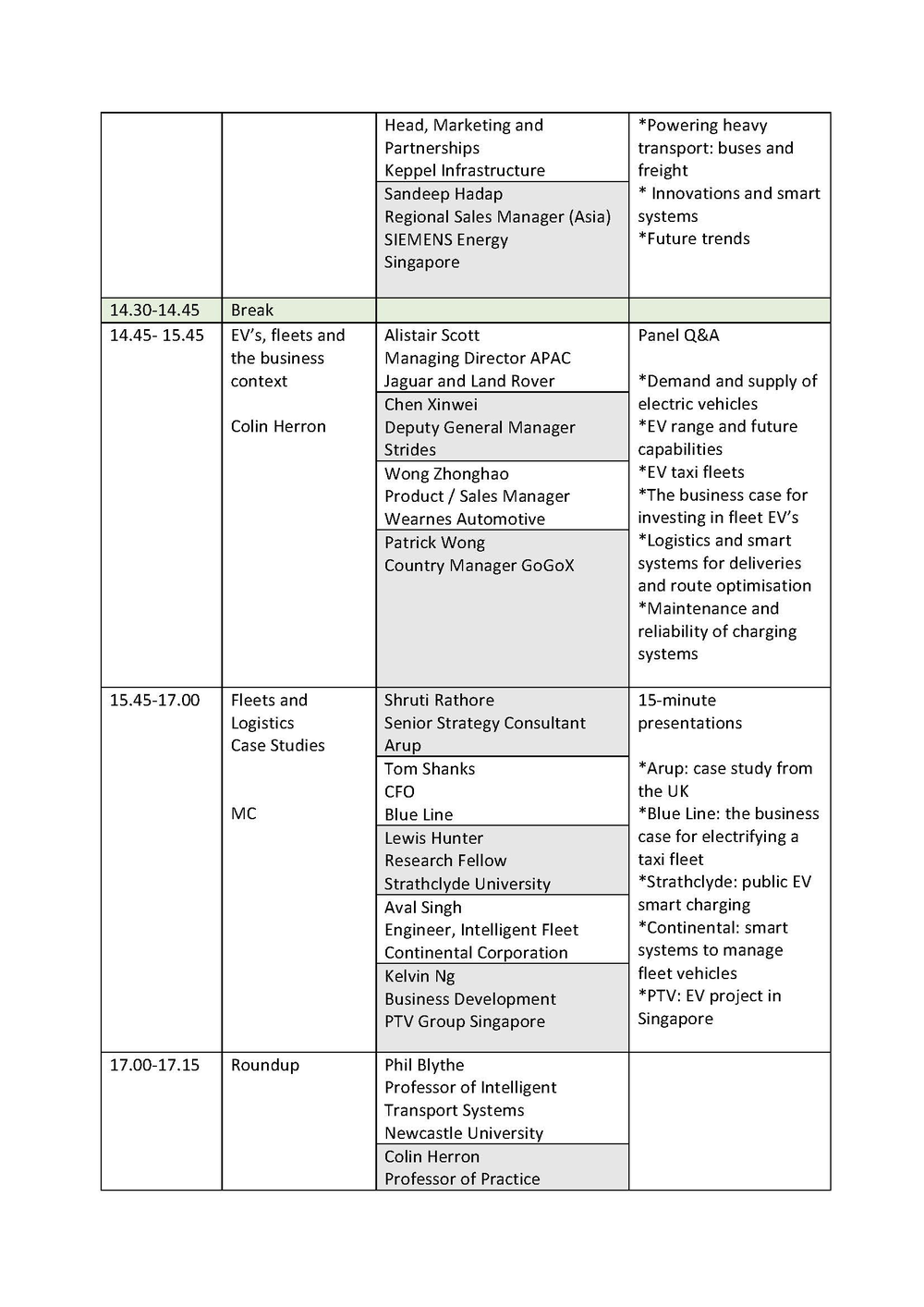
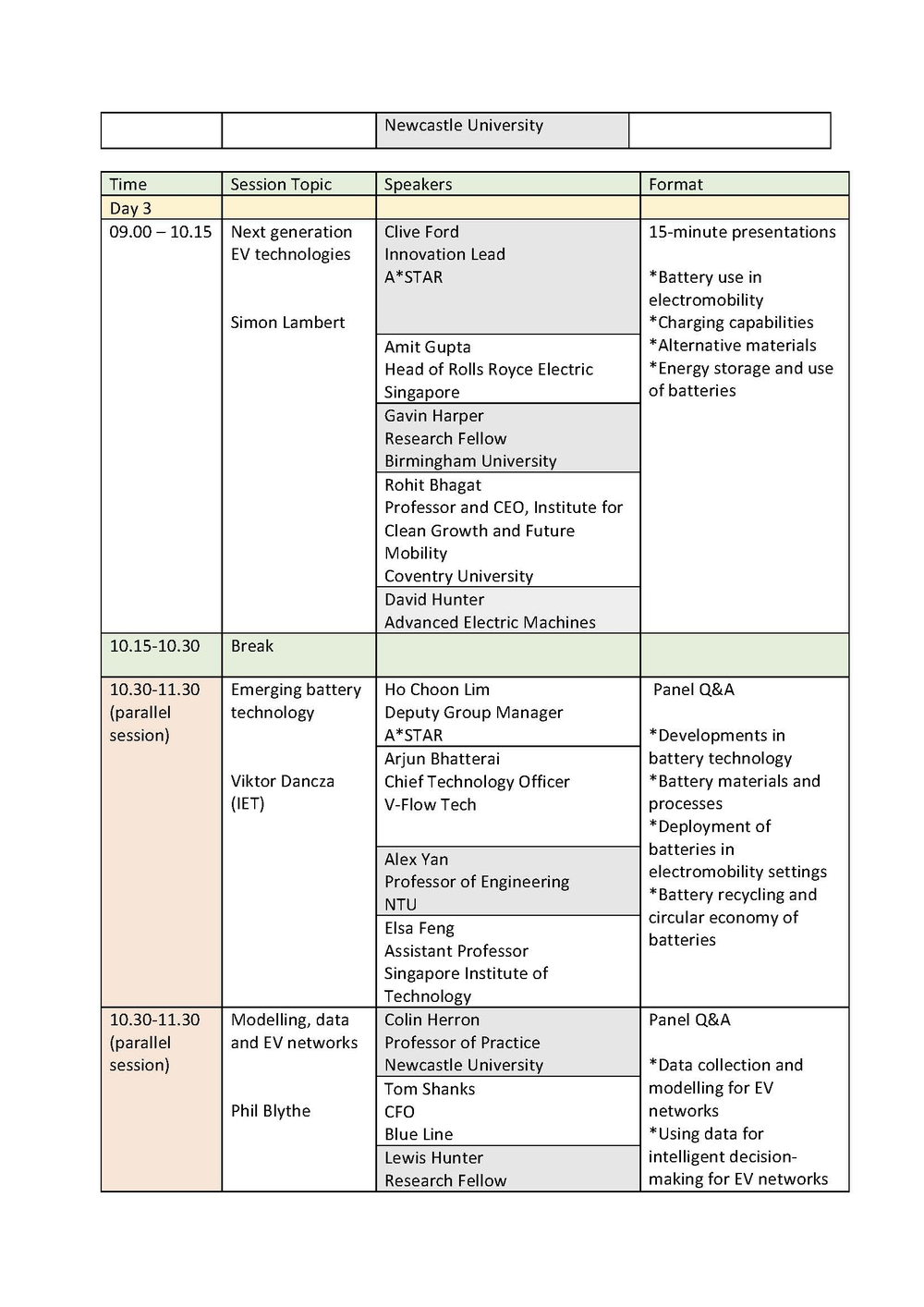
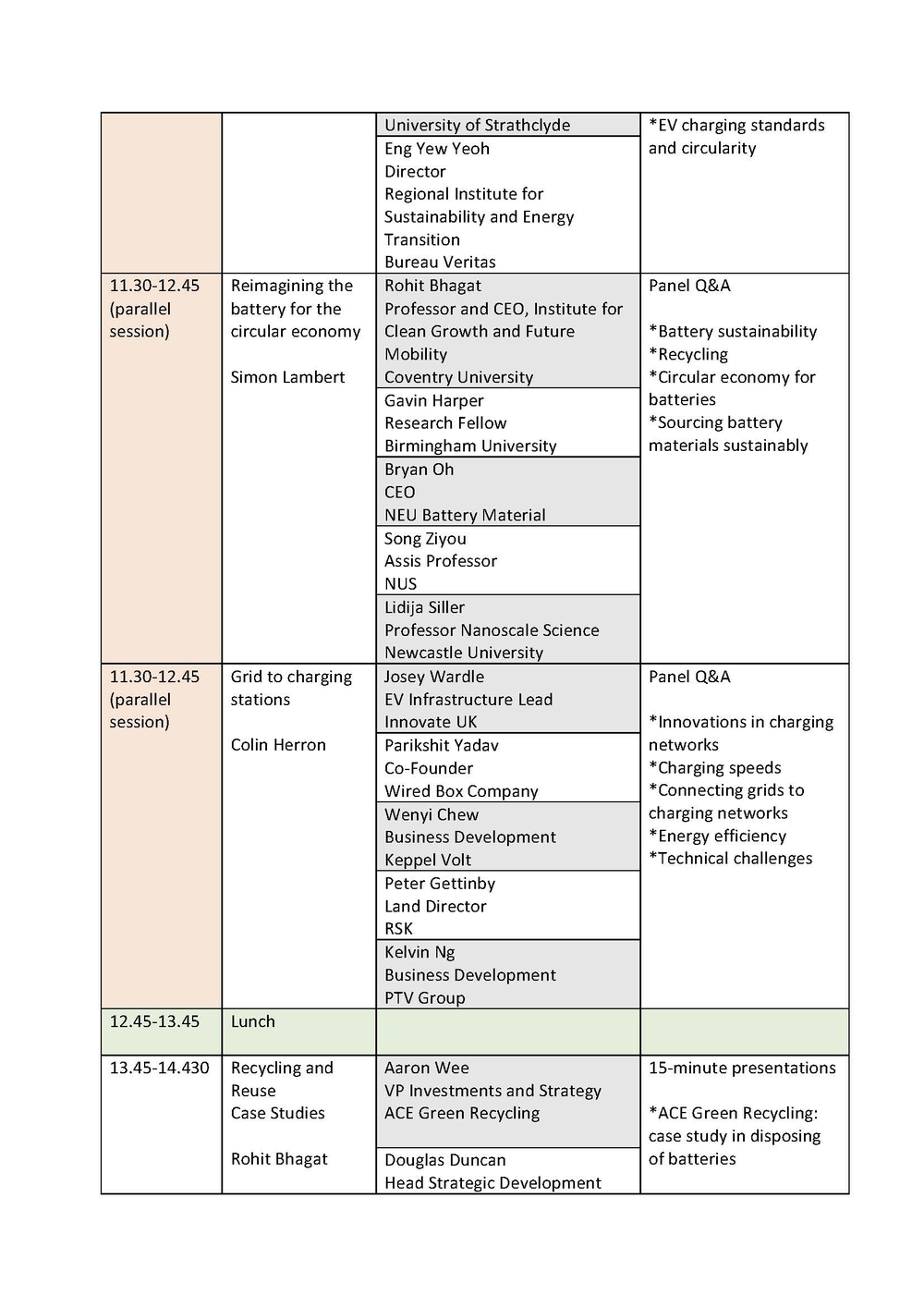
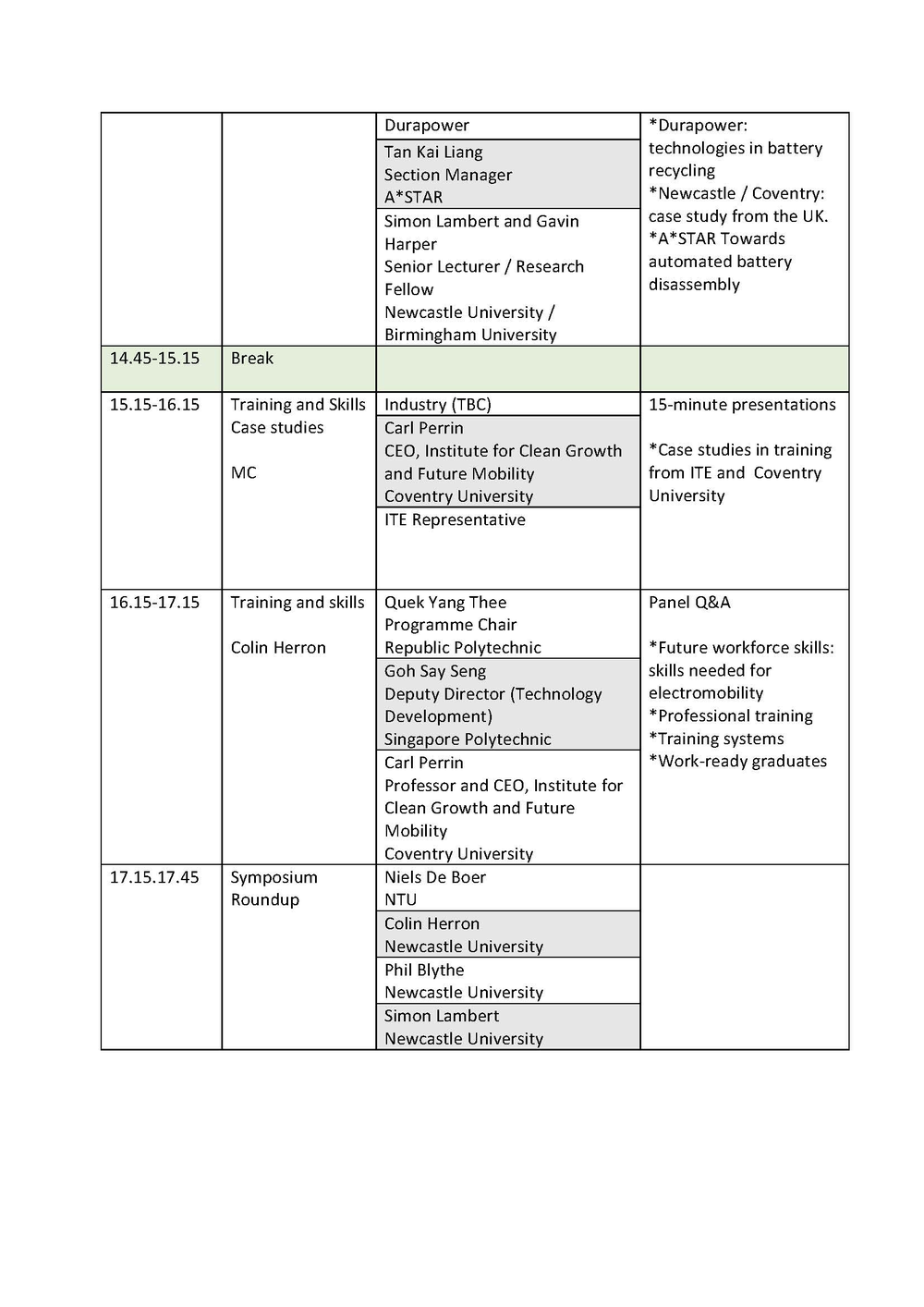
Speakers

Niels De Boer
Chief Operating Officer and Senior Programme Director of Energy Research Institute NTU
More Information

Yangfang Zhou
Associate Professor of Operations Management at Singapore Management University
More Information
- MB
Muhamed Azfar Bin Ramli
Deputy Department Director of the Agency for Science, Technology and Research (A*STAR)
More Information
- CF
Clive Ford
Innovation Lead at the Agency for Science, Technology and Research (A*STAR)
More Information
Background
To meet the existential challenges of Climate Change which are a result of the worlds path to industrialisation through the burning of fossil fuels and the subsequent emissions of Green House Gasses, Nations around the world to wrestling with the need to move their economies towards a net-zero economy.
Where many energy systems and industrial sectors have shown clear progress towards reducing GHG emissions, the transports sector and in particular the road transport sector is seen as the remaining 'low hanging fruit' for decarbonisation. The UK and Singapore have different geographies, demographics and economic bases and are both at different stages on the pathway toward road transport decarbonisation. It is clear we can learn from each other and exchange knowledge and best practice and as we move to the next phase of electromobility in Singapore and the UK, the research and experience already focus in the electromobility sector will form the creative basis upon which the challenges of moving towards the electrification of most road transport can be met together. This includes: the type of and location for charging infrastructure; understanding the demand for that infrastructure (and how it can be managed efficiently and effectively); the needs of the wider energy system to support this; understanding user demand and behaviour; and the overall opportunity for new traffic management arrangements to support the electromobility agenda.
Importantly we must recognise that this is not just a challenge for new technologies, infrastructure and business practices, we need to understand society and business and their willingness to change and adopt and most importantly the behavioural consequences of this transition. UK Universities have 12 years of experience with these issues, however the challenge of moving from electromobility being a niche part of road transport to it being the dominant form of propulsion requires a new and innovative approach where we can learn from each other and develop the research to support this – in Singapore the focus on electrification is more recent, however the challenges are similar, although this may not be so obvious at first glance. Thus the opportunities to understand what is needed and cooperating on the research and innovation that underpins a successful transition would benefit both countries and provide an exemplar that could be transferred elsewhere.
Overeview
09
00
-
10
00
Opening Remarks
The importance of electromobility in the UK and Singapore and its contribution to sustainability
10
00
-
11
00
Strategic overview
Strategic priorities for electromobility in UK and Singapore. Progress achieved and the challenges and successes.
11
00
-
11
30
11
30
-
13
00
The policy, cultural and social context
The policy frameworks for adoption of electric vehicles (EV's) including targets and incentives for adoption of private EV's, fleet vehicles and taxis. The impact of culture, behaviour and public perception.
13
00
-
14
00
14
00
-
15
00
EV Infrastructure
EV charging networks; distribution; modelling; intelligent systems to support the rollout of EV’s. Charging station technologies and services.
15
00
-
15
30
Case Studies
The business perspective on implementing and using charging networks; examples from industry.
15
30
-
16
00
16
00
-
17
00
Supply and trends
The supply and demand for EV’s; energy and sustainability issues; emerging technologies in EV's and mobility.
Tuesday, April 18, 2023
09
00
-
09
30
Opening remarks
National transport priorities; future trends; urban planning
09
30
-
10
30
National policies and systems
National policies; intelligent and integrated transport systems; urban mobility.
10
30
-
11
00
11
00
-
12
30
Connected and autonomous electromobility
Autonomous transport and impact on mobility and contribution to sustainability. Technical progress and the legal and cultural context.
12
30
-
13
30
13
30
-
14
30
Large infrastructure
Systems to support heavy transport; energy demand; modelling.
14
30
-
15
30
Case studies
Operations: public transport; freight; taxis and logistics.
15
30
-
16
00
16
00
-
17
00
Supply and investments
Fuel types; hybrid vehicles; emerging technologies and investments.
Wednesday, April 19, 2023
09
00
-
10
00
Battery technology
Charging performance and storage; current technology and trends; battery swop.
10
00
-
11
00
Recycling and waste
Battery lifespan and disposal; recycling and sustainability; environmental impact.
11
00
-
11
30
11
30
-
12
30
Safety and risks
Safety standards; regulations; public behaviours.
12
30
-
13
30
13
30
-
14
30
Workforce skills
Carl Perrin•Rohit BhagatWorkforce skills to support emerging transport systems; skills for battery production.
14
30
-
15
30
Case Studies
Examples of successful training programmes; new qualifications.
15
30
-
16
00
16
00
-
17
00
Thursday, April 20, 2023
09
00
-
10
00
Business opportunities and collaborations
Company presentations
10
00
-
11
00
Business opportunities and collaborations
Case studies
11
00
-
11
30
11
30
-
12
30
Business opportunities and collaborations
Speed meetings
12
30
-
13
30
13
30
-
16
00
Business opportunities and collaborations
Site visits
Aims
- Provide an international forum for policy-makers, researchers and industry representatives to strengthen connections and exchange perspectives on electromobility
- Identify the major policy, scientific and technical challenges shared by the UK and Singapore in implementing land transport electrification programmes
- Recognise that the challenges are not just with the technology and the infrastructure but understanding societal needs and concerns with the transition to electromobility and understanding how behaviour may change
- Develop a white paper for the UK and Singapore governments that recommends priority projects and research to address these challenge
- Create business opportunities for electromobility companies in the UK and Singapore
